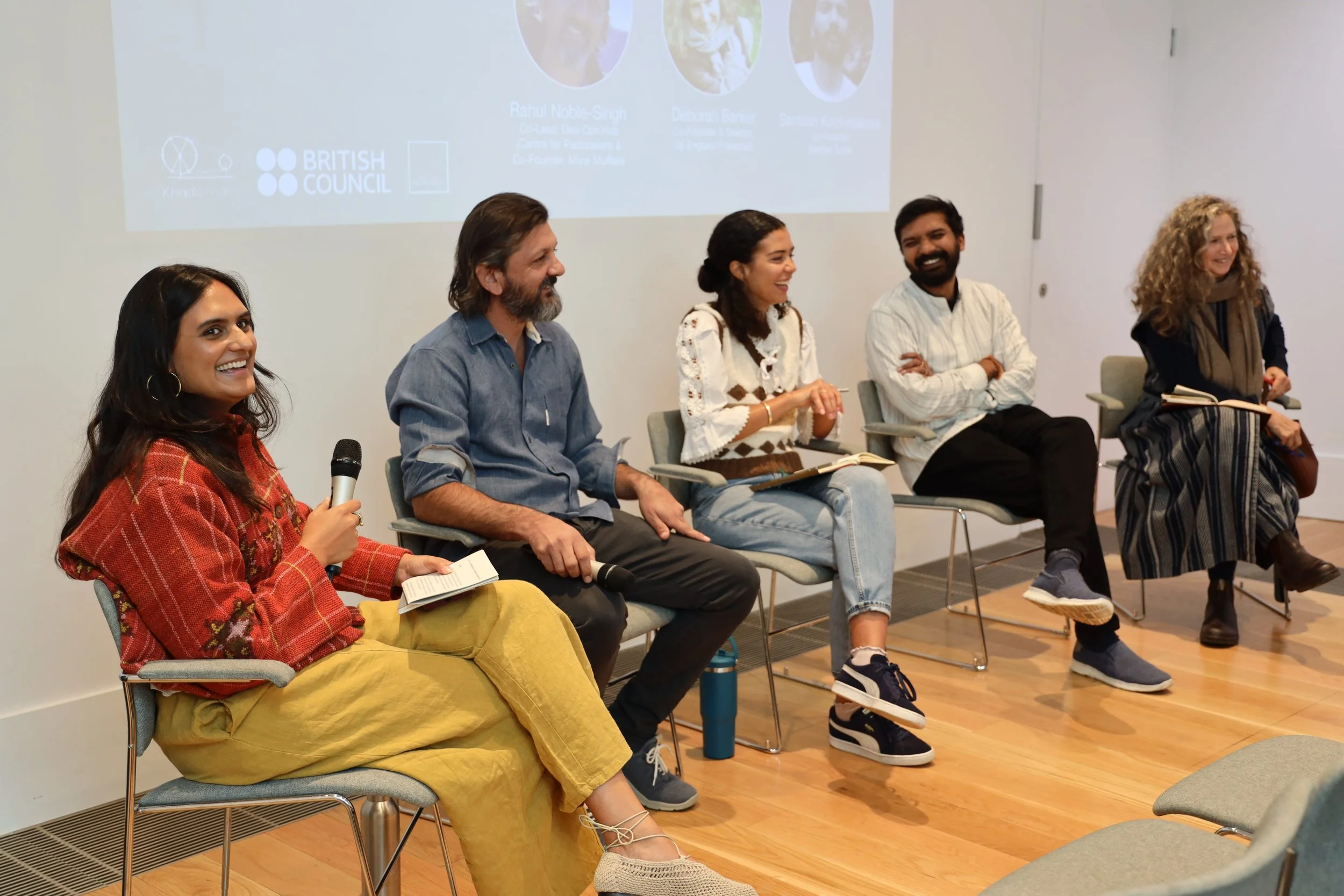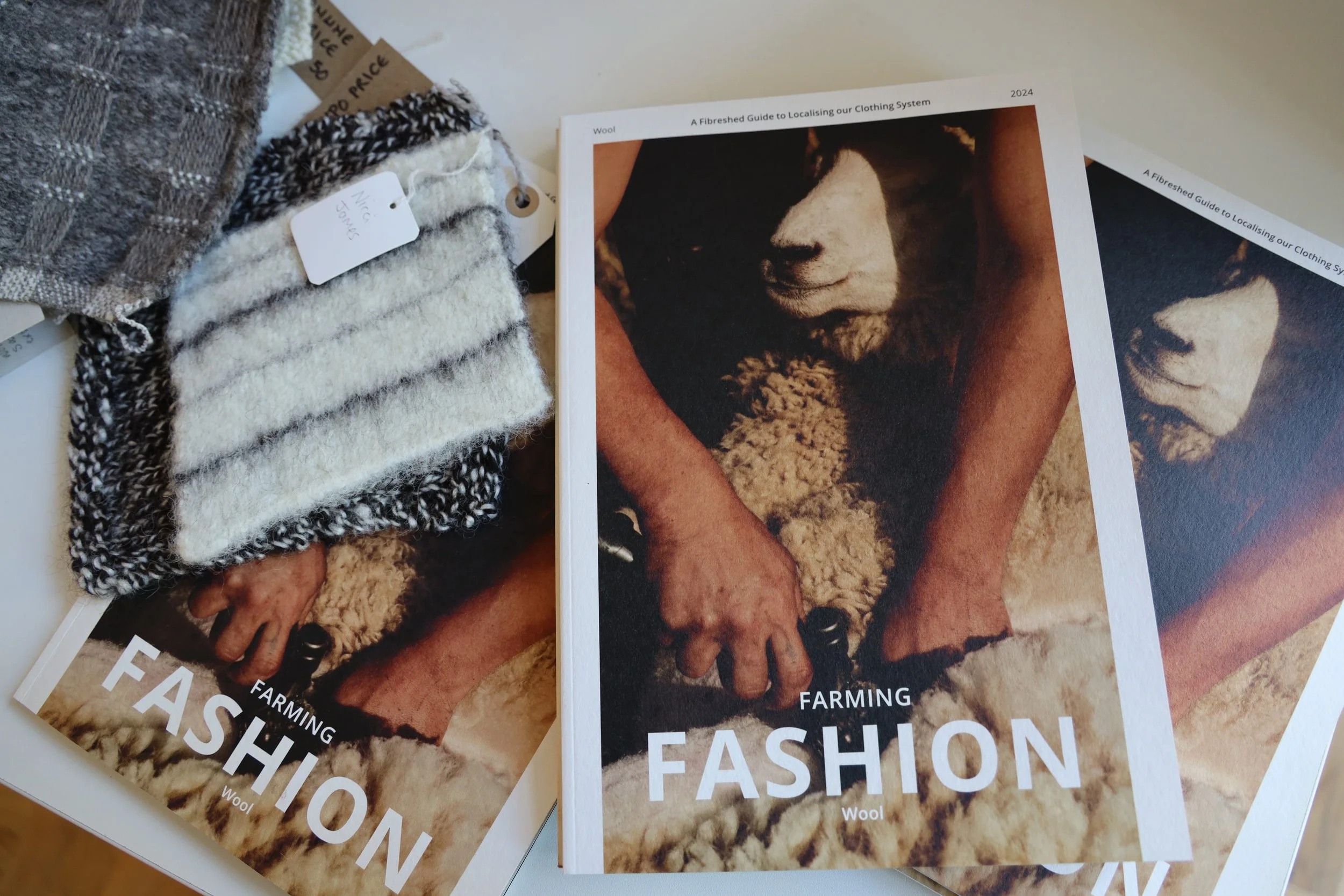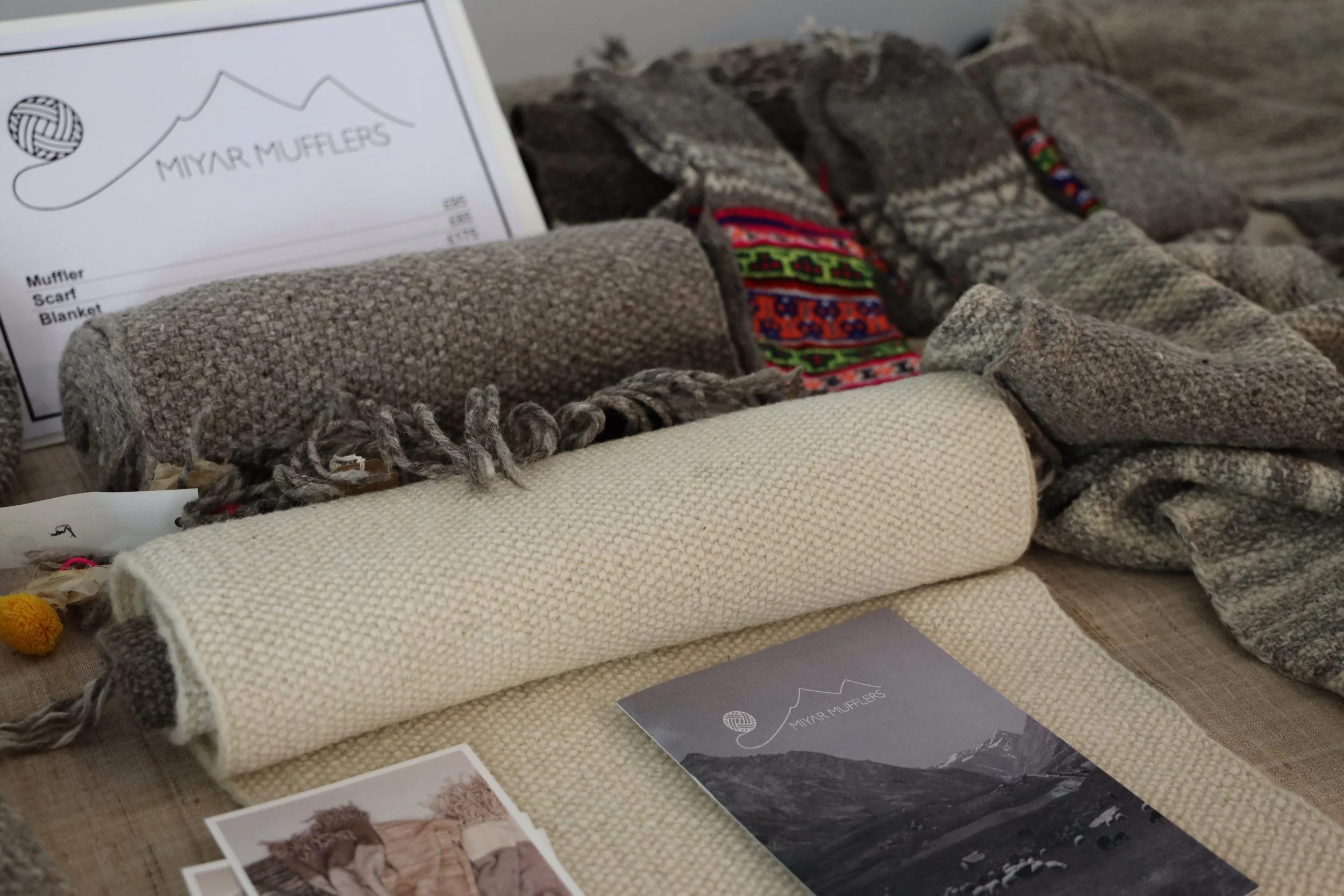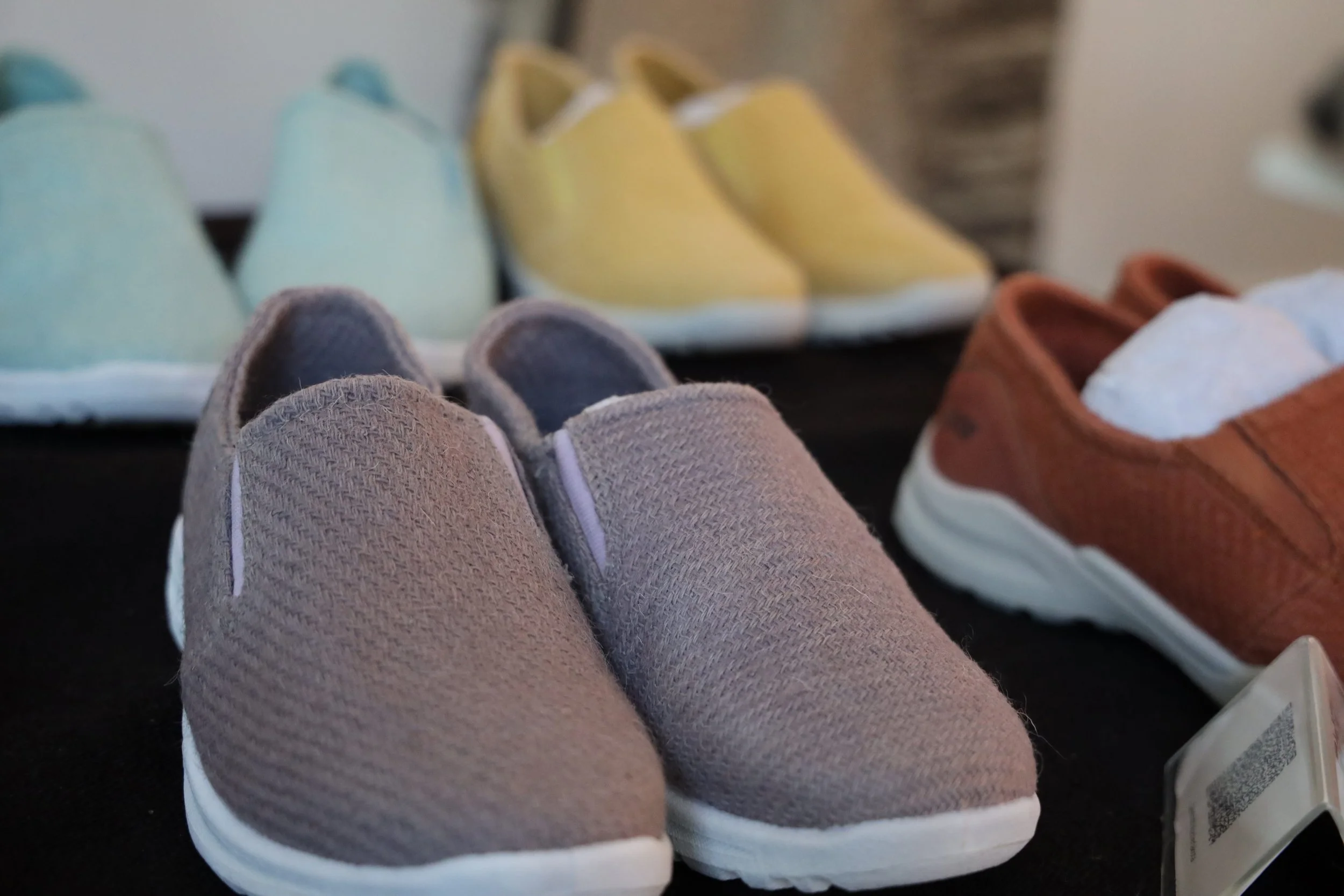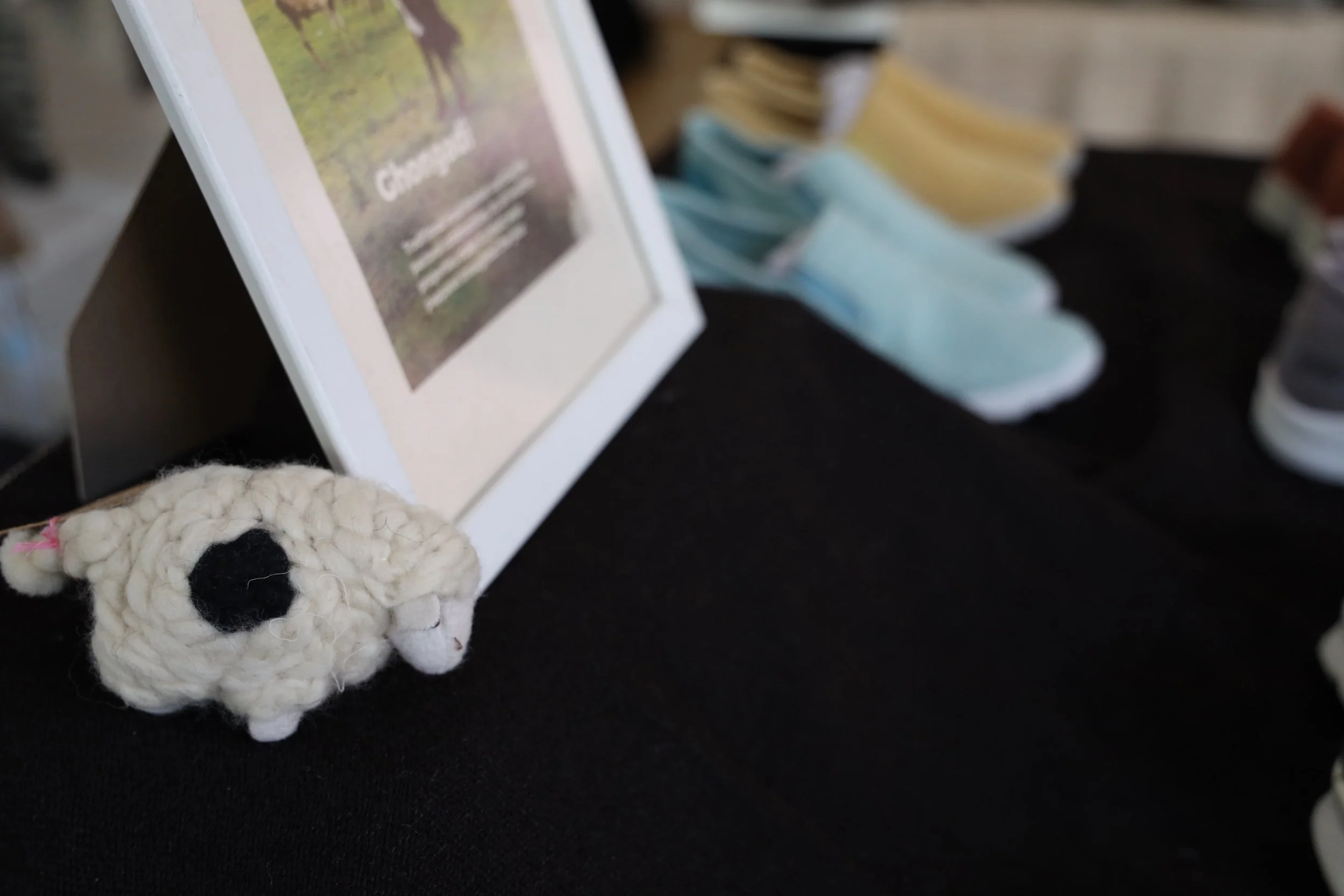BTS with Harriet, our Textiles Researcher at the Wool Across Borders Symposium at The Museum Of Home this week as part of London Textile Month.
Hear Harriet’s talk about her speech from the panel.
Understanding Wool: From Heritage to Global Value Chains, Panel. Image Credit: Khadi London/ Rachel Sheilakan
Understanding Wool: From Heritage to Global Value Chains, Panel. Image Credit: Khadi London'/ Rachel Sheilakan
The day began with an opening talk from Jo Salter and Ashna Patel about the background of Khadi London in the celebration of its 10-year anniversary and its decade of pioneering work within regenerative textiles. It was great to be sat in a room with so many regional wool enthusiasts and to hear so many inspirational stories, about this fibre and how it’s naturally intertwined into so many livelihoods.
After the initial introductions, we spent time looking through the pop-up shop which consisted of work and research from Fibreshed, hosted by Deborah Barker including a wide variety of farming to fashion books and beautiful tactile wool swatches.
Understanding Wool: From Heritage to Global Value Chains, Panel. Image Credit: Khadi London’/ Rachel Sheilakan
We also saw Indian wool throws and blankets from Rahul Noble-Singh, Co-Lead from Desi Oon Hub (Centre for Pastoralism) & Co-Founder of Miyar Mufflers.
Understanding Wool: From Heritage to Global Value Chains, Panel. Image Credit: Khadi London’/ Rachel Sheilakan
Santosh Kocherlakata presented Earthen Tunes Designs, a premium handwoven shoe collection using native wool and natural dyes, this was wonderful to see and to understand how wool can even be used in shoes as a brilliant alternative, ensuring breathability, comfort and climate beneficial properties!
Understanding Wool: From Heritage to Global Value Chains, Panel. Image Credit: Khadi London’/ Rachel Sheilakan
Understanding Wool: From Heritage to Global Value Chains, Panel. Image Credit: Khadi London’/ Rachel Sheilakan
We then went into the first panel talk, Understanding Wool: From Heritage to Global Value Chains, where I was a panellist. Ashna Patel kicked off the conversation with an overview of each brand and what they do, analysing the similarities and differences between British and Indian wool fibres and to explore how we all feel about the current wool climate.
As conversations developed, we delved into the many barriers that British and Indian wool products face when entering the global market, from cost concerns for buyers and consumers, to the barriers to entry around certification and compliance for both brands and businesses.
She also spoke about how wool has drastically decreased in value and yet innovation and experimentation is still emerging - this was very interesting to hear and suggests that there is still a clear demand for local wool products which have provenance, heritage and regional traceability.
Santosh mentioned that Indian wool growers simply don’t have access to the funds or facilities to implement certifications such as the Responsible Wool Standard (RWS), although the animal welfare standards are extremely high and the sheep are reared holistically.
This is very similar to the British wool model - we have some of the highest animal welfare standards in the world and although there is a big debate about bringing the RWS to the UK, this is actually not needed and is a very costly and time consuming process for the farmer.
Understanding Wool: From Heritage to Global Value Chains, Panel. Image Credit: Khadi London’/ Rachel Sheilakan
We then moved into a Q&A, where an audience member raised concerns about the cost of wool, and how this is often inaccessible for most people. This was an interesting question, and something that comes up a lot when talking about regenerative fashion.
Deborah Barker articulated this beautifully, highlighting the challenges around cost and production extend far beyond the realms of fashion - they intersect with science, politics, and economics.
“We cannot expect farmers to take more of the financial burden to lower costs, especially when they are already receiving prices for their fleeces, that barely covers the cost of the shearer” - Deborah Barker

